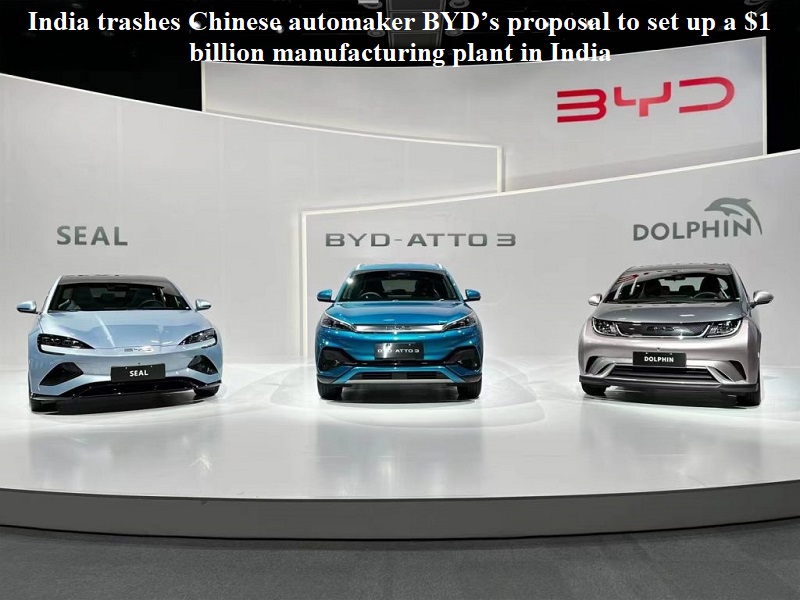
According to a report by Economic Times on Saturday, the Indian government, led by Narendra Modi, has rejected a proposal from Chinese automaker BYD to establish a $1 billion manufacturing plant in India. The proposal involved building electric vehicles (EVs) and electric batteries in partnership with an Indian EV company called Megha Engineering and Infrastructure Ltd.
The main reason for the rejection was “security concerns” related to Chinese investments in India, as per statements from Indian officials. The Chinese company had originally planned to manufacture 15,000 electric cars annually in India.
Times Now reported that BYD already has a significant presence in the Indian automobile market and had ambitious plans for expansion in the country. However, these plans seem to have been thwarted as the Indian government remains firm in keeping Chinese players away from major sectors in India, including telecom, automobile, and cyberspace.
Currently, BYD has an operational manufacturing facility in India’s southern state of Tamil Nadu with a production capacity of 10,000 units per year.
This development occurs amid ongoing discussions between the Indian government and Tesla, owned by US billionaire Elon Musk, for setting up a factory in India. Indian officials expressed confidence in the positive outcome of these discussions, as Tesla’s plans involve both local manufacturing and exports.
India introduced a policy in 2020 following tensions with China in the Himalayas, imposing restrictions on Foreign Direct Investments originating from China. Investments from countries sharing land borders with India, including China, now require prior approval. This move has been viewed as an anti-China measure.
In May of the same year, the Indian government unveiled plans to crack down on Chinese companies attempting to bypass these rules by using shell companies and accessing subsidies typically denied to Chinese firms.

Post Your Comments